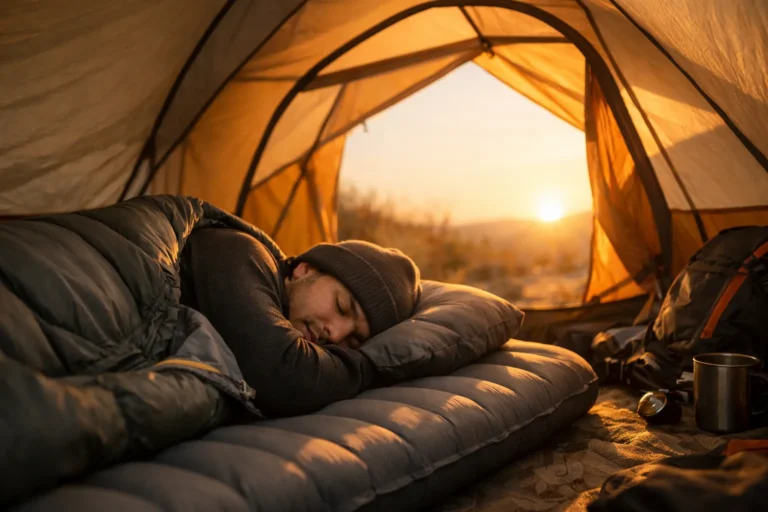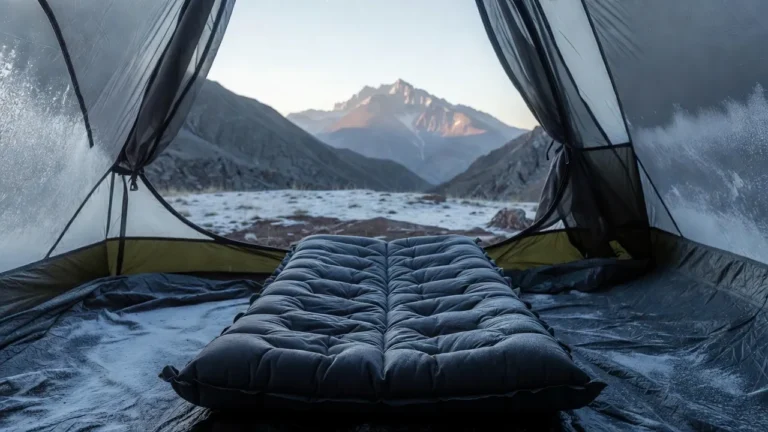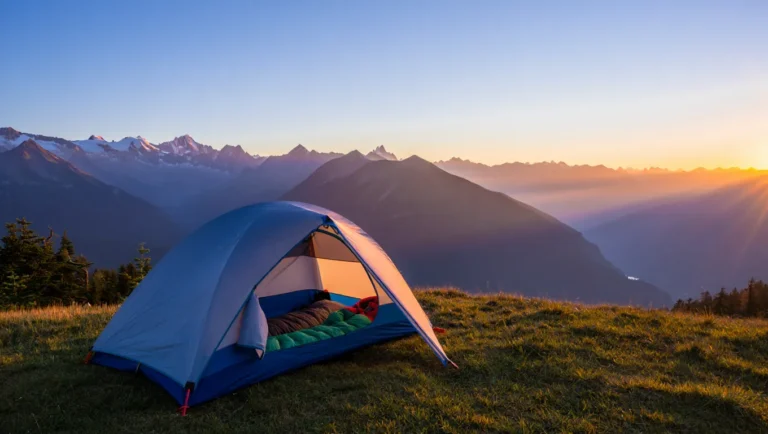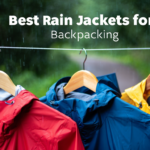🔥 Introduction
Looking for camping tools under 100g that actually pull their weight?
When every ounce matters, even the smallest gear choices can make a big difference.
Ask any serious backpacker, and they’ll tell you: it’s not always the big gear that saves the trip — it’s the tiny essentials you barely notice… until you really need them.
This list is all about those tools — the ones that weigh less than 3.5 ounces (100 grams) but punch far above their weight. No gimmicks. No fluff. Just compact, functional, field-tested gear that experienced hikers actually carry and use.
If you’re trying to lighten your load without losing functionality, this is your go-to list.

These carefully selected camping tools under 100g may look unassuming, but they’re the kind of gear that ultralight hikers trust trip after trip. Below is a detailed breakdown of what they are, how they work, and why they’re worth the ounces.
⚙️ Quick Comparison Table
| Tool | Avg. Weight (oz) | Use Case | Why It’s Worth Packing |
| Ferro Rod Firestarter | ~1.1 oz | Starting fire in any weather | Reliable in wet, windy conditions |
| Titanium Tent Stakes (Set of 6) | ~1.6 oz total | Anchoring shelter | Ultralight, won’t bend like aluminum |
| Mini Repair Kit | ~1.0 oz | Trail gear fixes | Compact & versatile emergency fix |
| 15 ft Paracord | ~1.4 oz | Hanging, tying, rigging | Multipurpose, strong & lightweight |
| Emergency Whistle | ~0.3 oz | Safety signaling | Louder than shouting, no batteries |
| Keychain Compass + Thermometer | ~0.8 oz | Backup navigation & awareness | Adds safety with almost no weight |
| Micro Carabiner (Aluminum) | ~0.4 oz | Hanging gear | Quick-access solution for loose items |
🔥 Ferro Rod Firestarter — When Lighters Fail, This Sparks
Forget the disposable lighters that crack or run out of fuel. A good ferro rod weighs about 1.1 oz and works when wet, cold, or windy — which is exactly when you need fire the most.
Backpackers who swear by it say it’s one of the few items they never leave behind, even on ultralight trips. Just one flick with a scraper or spine of a knife, and you’ve got a shower of sparks hot enough to light dry grass, birch bark, or cotton balls soaked in Vaseline.
🔍 Real-world insight:
“Had my lighter die at 9,000 feet in Colorado. The ferro rod saved the trip — fire in 15 seconds, even in snow.” — user review on a UL forum
✅ Why it made the list:
- Works in any weather — unlike butane lighters
- Long-lasting — thousands of strikes per rod
- Zero reliance on fuel — fully manual ignition
- Compact — fits on a keychain or hangs from your pack
⚠️ Things to know:
- Needs a sharp edge to scrape (some rods come with striker)
- Takes practice — don’t wait until the emergency to learn
⛺️ Titanium Tent Stakes — Strong Hold, Zero Bulk
When your shelter’s the only thing between you and the storm, flimsy stakes just don’t cut it. That’s why many ultralight hikers upgrade to titanium tent stakes — a set of six typically weighs around 1.6 oz total.
Unlike aluminum stakes that bend in rocky soil or plastic ones that snap, titanium holds its shape and keeps your shelter grounded — even in high wind or uneven terrain.
🔍 Real-world insight:
“I’ve bent plenty of cheap stakes on rocky Appalachian ground. Switched to titanium and haven’t looked back — worth every gram.” — review from long-distance hiker
✅ Why it made the list:
- Strong and reliable in tough ground
- Featherweight — lighter than aluminum per unit
- Corrosion-resistant — won’t rust or degrade
- Low-profile — fits easily in any stake pouch
⚠️ Things to know:
- Smaller heads can be tricky with gloves
- Not all shapes hold well in sand or snow — Y-stakes work best for general use
🧵 Mini Repair Kit — The Ounce That Saves Your Trip
It’s easy to overlook… until your sleeping pad pops, your shoulder strap tears, or your tent zipper fails halfway through a multi-day hike. A well-packed mini repair kit weighs about 1.0 oz and can keep you moving when gear lets you down.
Experienced hikers don’t leave home without a few key items:
- Needle & dental floss (stronger than thread)
- Duct tape (wrapped around a lighter or trekking pole)
- Zip ties (for emergency strap fixes)
- Safety pins or patch squares for holes in gear or clothing
🔍 Real-world insight:
“Duct tape saved my trail runners twice. Once the sole started peeling, and another time the upper ripped. Temporary fix, but got me to the next town.” — thru-hiker review on Reddit
✅ Why it made the list:
- Versatile — fixes everything from backpacks to boots
- Customizable — tailor it to your gear
- Takes up no space — store in a Ziploc, pill bottle, or Altoids tin
- Can be shared — trail karma is real
⚠️ Things to know:
- Don’t overpack it — stick to the real lifesavers
- Know how to use each item before the trip
🔗 Paracord (15 ft) — The Most Useful String You’ll Ever Pack
If you ask thru-hikers what single item saved their trip, paracord often makes the list. A 15-foot bundle weighs about 1.4 oz, but its value far outweighs the grams.
Need to hang food? Build a tarp shelter? Replace broken shoelaces or guy lines? That same piece of paracord does it all — and then some. It’s the Swiss Army knife of cords.
🔍 Real-world insight:
“Used it as a clothesline, bear bag line, bootlace, and even to splint a friend’s trekking pole. Didn’t think I’d use it much — now I never leave without it.” — section hiker comment on a UL blog
✅ Why it made the list:
- Extremely strong for its weight
- Multipurpose — tie, fix, hang, rig
- Inexpensive — easy to replace if frayed
- Compact — wraps around water bottle, trekking pole, or stuffs into a pouch
⚠️ Things to know:
- Avoid cheap knockoff cord — true 550 paracord is rated to hold 550 lbs
- Keep a few short pieces pre-cut for quick fixes
📢 Emergency Whistle — Tiny, Loud, Life-Saving
It’s one of the most overlooked camping tools under 100g — but also one of the most critical in emergencies. It weighs less than 0.3 oz, fits on a zipper pull, and you’ll hopefully never need it. But when you do — it might be the only thing that gets someone’s attention.
A good emergency whistle is louder than shouting, works in bad weather, and doesn’t rely on batteries. It’s one of the few tools that serious hikers carry just in case, and for good reason: when injured, disoriented, or separated from your group, your voice won’t travel — but a high-pitched whistle will.
🔍 Real-world insight:
“Lost the trail during whiteout fog in the Sierras. My whistle helped a group 300 yards away find me — shouting didn’t carry.” — PCT trail journal
✅ Why it made the list:
- Virtually weightless — no excuse not to bring it
- High-decibel signal — can be heard over wind and water
- Simple & durable — no moving parts, no batteries
- Often integrated into backpack straps or survival kits
⚠️ Things to know:
- Avoid whistles with a “pea” — they can freeze or jam
- Practice a simple signal (like 3 blasts = emergency) with your group
🧭 Keychain Compass + Thermometer — A Backup That Weighs Almost Nothing
A digital GPS is great — until the battery dies. A smartphone is helpful — until it loses signal. That’s why many experienced hikers clip a keychain compass with built-in thermometer to their pack. It weighs around 0.8 oz, and it’s surprisingly handy.
While not meant for precise navigation, this tiny tool can help you stay oriented, read the general direction of the trail, or just confirm you’re not doubling back. And the thermometer? Great for gauging frost risk, checking morning lows, or timing your layering system.
🔍 Real-world insight:
“I didn’t think I needed one, but after losing signal in the Smokies, it helped me stay on the right ridgeline. Worth the weight.” —hiker review
✅ Why it made the list:
- Ultralight — barely noticeable on your zipper or sternum strap
- Passive utility — always visible, no buttons, no fuss
- Gives orientation + temperature at a glance
- No power required — always on, always there
⚠️ Things to know:
- Don’t rely on it for bushwhacking or off-trail nav
- Choose one with liquid-filled housing for accuracy and durability
🧷 Ultralight Carabiner — Clip It, Hang It, Don’t Lose It
Not for climbing — but perfect for everything else. A simple aluminum micro carabiner weighs just 0.4 oz and earns its keep by solving little problems you don’t think about… until you’re deep in the woods.
Hang your mug from your pack. Clip your gloves to your tent line. Keep your trowel from vanishing into your food bag. For minimalist hikers, a tiny carabiner is organization, accessibility, and sanity — all in one clip.
🔍 Real-world insight:
“Lost my water bottle once because I didn’t clip it. Now I carry 2 carabiners — one for gear, one for peace of mind.” — comment on a backpacking subreddit
✅ Why it made the list:
- Tiny but tough — strong enough for most gear
- Multipurpose — clip gear, hang food, manage cords
- Quick-access — saves time rummaging in your pack
- Cheap & customizable — get a color-coded pack
⚠️ Things to know:
- Not for climbing or heavy loads
- Aluminum beats plastic — lighter, stronger, longer-lasting
🎒 Conclusion — Tiny Tools, Serious Impact
Minimalist camping isn’t about sacrifice — it’s about smart choices.
And the right camping tools under 100g prove that the smallest items often deliver the biggest wins.
Each tool on this list:
- Takes up almost no space
- Performs one or more critical tasks
- Has been trail-tested by experienced hikers
- Weighs under 3.5 oz and actually gets used
- Solves real problems without adding bulk
Packing smart means focusing on essentials — and nothing is more essential than camping tools under 100g that earn their place every time you hit the trail.
Whether you’re prepping for a thru-hike or lightening your weekend setup, these tiny tools do more than pull their weight — they make every mile smoother.
👉 One final tip? Build your own “under 100g kit” and stash it in your pack. You’ll forget it’s there — until the day you’re really glad it is.
Bonus: How to Pack Your 100g Toolkit
A smart tip: group your camping tools under 100g into one compact kit so you’re never caught digging through your pack when it matters most.
Here’s how to pack it right:
- Use a mini stuff sack, pill bottle, or Altoids tin to keep everything organized
- Pre-cut paracord and duct tape to avoid fumbling with long rolls
- Attach your compass or whistle to a zipper or strap for quick access
- Keep it reachable — stashing it too deep defeats the purpose
“If you’re also looking for compact gadgets that go beyond tools, check out our Top 7 Compact Camping Gadgets for 2025 — practical, tested, and light.”








